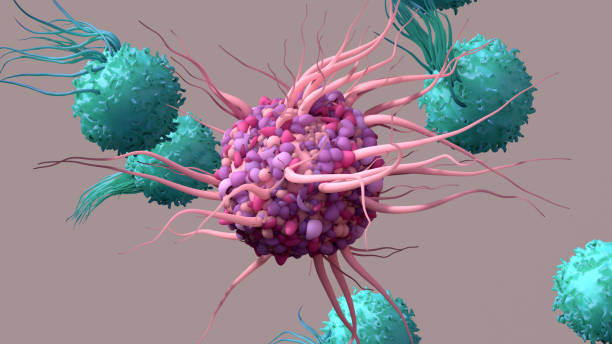Many types of cancer are detected in the advanced stages, after they have spread to distant sites. It is impossible to remove all tumors in the body, so the results of treatment of metastatic cancer depend on systemic techniques such as chemotherapy, hormonal, targeted, immunotherapy and others. One of the new variants of immunotherapy successfully used in specialized clinics in Germany is dendritic cell cancer therapy. You can take advantage of this innovative method by booking treatment in one of the German hospitals through Booking Health service.

What dendritic cells are
Dendritic cells (DCs) are one of the many types of immune cells found in the human body. Their function is to contact antigens as they enter the body, break down large antigens into small pieces, and then present them to T-cells, which then attack the foreign agent, such as a bacterium, virus, or cancer cell.
Immunity can do many things. It can successfully resist the malignant process and keep cancer at a standstill for years. But the problem is that the tumor knows how to hide from the immune system’s attacks, not least by reducing the activity of dendritic cells. Immunotherapy addresses this problem and achieves therapeutic results by boosting the anti-tumor immune response.
How DCs are used in cancer treatment
The human immune system does not know how to recognize a tumor, so it does not attack it. But if you teach DCs to see cancer by giving them information about tumor antigens, they pass that information on to T-cells. Cellular immunity goes into action and attacks all the tumors in the body at once, shrinking them.
Dendritic cell treatment involves the creation of a personalized anti-cancer vaccine. The principle of the treatment is as follows: blood is taken from a person, monocytes are isolated and dendritic cells are obtained from them. DCs are treated with tumor antigens. It is preferable to use tumor cells obtained from the patient’s own body, such as surgical or biopsy material.
DCs mature and are then injected into the body: subcutaneously or intramuscularly. The DCs migrate to the lymph nodes, where they meet T-cells and transmit information about the tumor antigen. The cytotoxic immune cells now know the enemy by sight. They migrate to the tumor and attack it, destroying the cancer cells.
Advantages of the method
The advantages of cancer treatment using DCs are:
- High effectiveness in all stages of cancer, including advanced disease
- Combinability with any treatment options
- Minimal contraindications
- Low toxicity and good tolerability
- Minimal time of patient’s stay in hospital
For better results, DCs are often combined with other immunotherapies: oncolytic viruses and checkpoint inhibitors.
Who is a good candidate for cancer treatment with dendritic cells?
DCs are mainly used after surgery, to reduce the risk of recurrence, and in the advanced stages of cancer in combination with other systemic treatments.
So far, the list of diseases in which DCs can be used is limited. In most oncopathologies, dendritic cell vaccines are used as an experimental technique.Get a consultation with Booking Health specialists to find out if DCs treatment is possible in your case. They will choose a clinic for you and organize your treatment in another country. On the Booking Health website you can find out the prices for medical services and make an appointment for convenient dates. The cost of diagnostics and treatment abroad will be lower than usual because there will be no additional charges for foreign patients.


